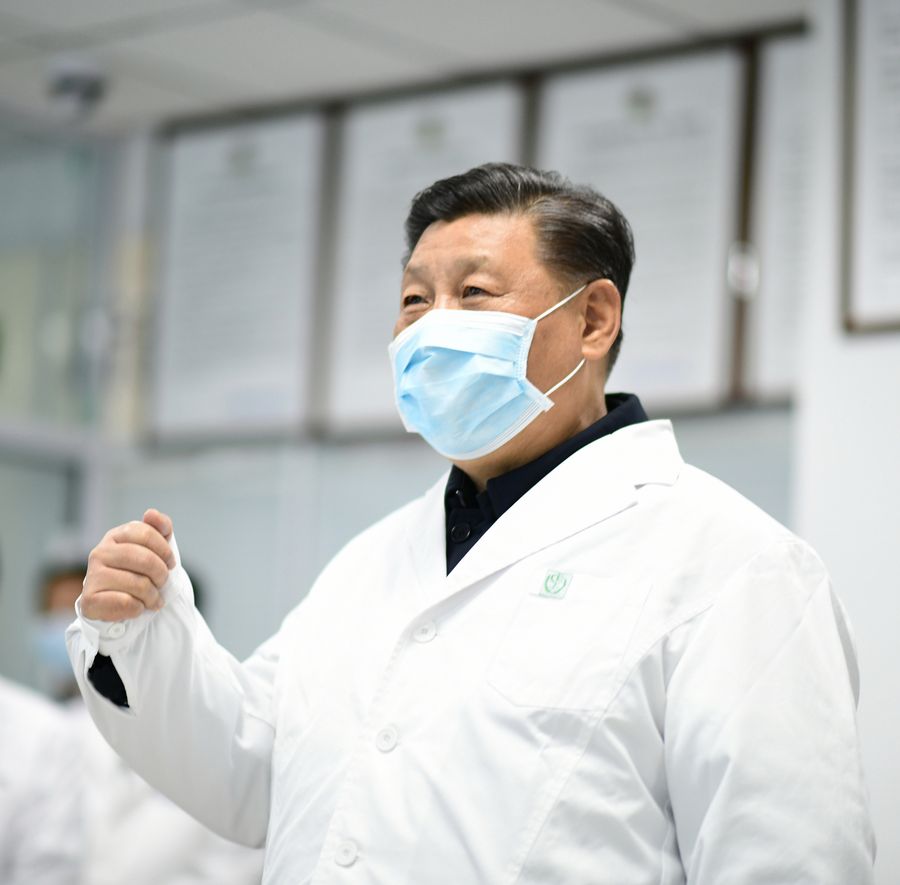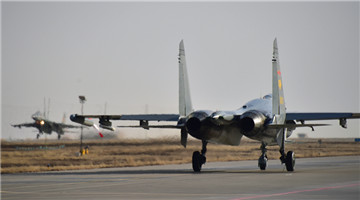
Disease prevention, detection, control systems need to be strengthened
Xi Jinping, general secretary of the Communist Party of China Central Committee, on Friday stressed the importance of drawing on lessons from the novel coronavirus pneumonia outbreak and improving the country's systems for major epidemic control, prevention and public health emergency management.
Xi, also China's president and chairman of the Central Military Commission, urged efforts to include biological safety in the national security system, systematically plan control and prevention measures for biosafety risks and improve governance capacities in this regard.
A law on biological safety must be created as soon as possible, he said while presiding over the 12th meeting of the Central Committee for Deepening Overall Reform, held in Beijing.
The fight against the contagion presented a major test of the country's governance system and capacities, and it is important to innovate and improve the control and prevention measures for major outbreaks at the institutional level and bolster the country's level and capacities in coping with major public health incidents, he said.
Novel coronavirus pneumonia, also called COVID-19, had killed 1,380 people in the Chinese mainland as of Thursday, with a total of 63,851 people infected and 10,204 people remaining in critical condition, according to the National Health Commission.
He urged stronger legal support in public health and scaling up lawmaking in the area across the board, saying that the country must carefully assess revisions to laws on the prevention and control of contagious diseases and the protection of wildlife.
Xi called for reforms to the disease control and prevention system so that a public health policy that prioritizes prevention can be thoroughly implemented and small disease incidents becoming an epidemic can be avoided.
The capacity for disease control and prevention at the primary level must be stepped up, and the ranks of public health workers must be strengthened, with measures to refine the mechanisms for the training of workers, access restrictions, staff treatment, evaluation and incentives, Xi said.
He highlighted the need for greater awareness of risk prevention, saying that the coordinated mechanism for judging, evaluating, decision-making and control and prevention for major risks in public health must be refined.
The country must reform its control, prevention and disease treatment mechanism for major contagions, improve its emergency response mechanism and establish a centralized and efficient command system, he said. He added that the system must ensure that instructions are issued clearly, systematically and can be fully enforced to solve problems on the front line.
Xi called for improving the coordinated system for scientific research, disease control and clinical treatment and the standard practice for the control and prevention of major epidemic outbreaks and medical treatment approaches.
The medical treatment system for major outbreaks must be optimized, and a tiered treatment mechanism for major contagions should be established, he said.
The use of digital technologies such as big data, artificial intelligence and cloud computing must be encouraged so that they can serve as a pillar in the monitoring and analyzing of outbreaks, tracing viruses, epidemic control and prevention, medical treatment and distribution of resources, he said.
Xi stressed that the medical insurance and assistance system for major diseases should be bolstered so that medical institutions can offer treatments before charging patients as they face a sudden outbreak.
He underlined the importance of establishing a unified security system for emergency response materials with heightened measures in ensuring production capacity and balancing its regional distribution to ensure the supply of key materials in crucial periods.
He also urged improvements to the national reserve system with efforts to adjust its categories, scales and structures, adding that a national unified purchasing and supply system for emergency management materials must also be established.
The meeting reviewed and approved seven documents on furthering reform in different areas as well as the committee's work report in 2019 and its key points for work this year.
Among the documents were a guideline on refining the socialist market economy system for the new era and another guideline on promoting the reform and opening up of the service sector.
The country will scrap access restrictions for the service sector on a by-category basis, establish an oversight system and deepen the reform of key areas, said a statement released after the meeting.











